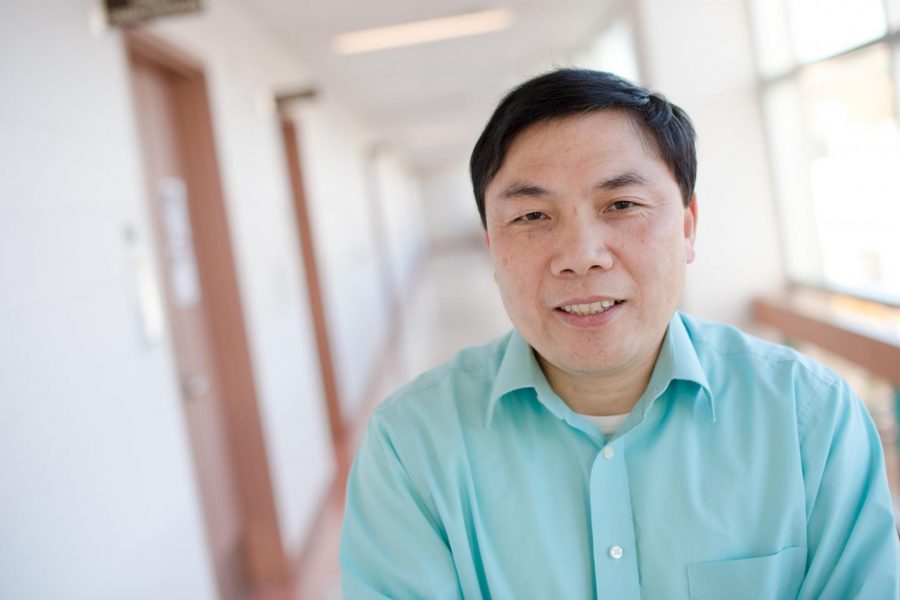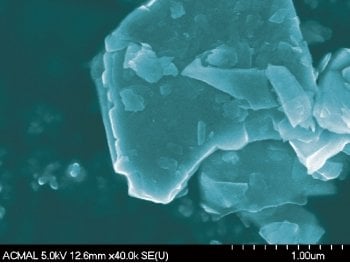
Have you ever met a professor bestowed with the distinguished honor of Fellow…six times? At Michigan Tech, that professor is Yun Hang Hu, the Charles and Carroll McArthur Endowed Chair Professor in the Department of Materials Science and Engineering. Dr. Hu is an international leader in energy research for his innovative processing of materials.
He has been named a Fellow six times for the breadth and rigor of his work:
- Fellow of the American Physical Society – 2020: “For pioneering contributions to the dynamic control of structures and properties for carbon nanomaterials in their chemical synthesis, for the discovery of phase-disorder effects on memristive behaviors of metal sulfides, and for advances in chemical physics of catalysis and photocatalysis.”
- Fellow of the ASM International – 2020: “For outstanding contributions to research and innovation in energy conversion materials; including application in solar cells, supercapacitors, hydrogen production and hydrogen storage.”
- Fellow of the American Chemical Society – 2020: “Recognized for pioneering the synthesis and application of shape-controlled 3D graphene, discovering memristive behavior of 2D layer materials, inventing thermal-photo hybrid catalytic processes, designing efficient electrodes for energy devices, and inventing novel hydrogen storage materials.”
- Fellow of the American Association for the Advancement of Science – 2014: ”For distinguished contributions in the field of novel materials and catalysts, particularly for molecular design and synthesis of nanomaterials for energy conversion, storage, and utilization.”
- Fellow of the American Institute of Chemical Engineers – 2013: “Recognized for his exceptional, sustained accomplishments in energy, materials, catalysis and novel processes.”
- Fellow of the Royal Society of Chemistry – 2013: “More than five years in a senior position….efforts have made an impact in any field of the chemical sciences.”

Hu innovates the processing of hydrogen production, hydrogen storage materials, greenhouse gas conversion, and energy conversion and storage.
His groundbreaking work has led to several brand-new materials and processes, innovations will help in a number of applied technologies—from supercapacitors that run elevators to solar cell banks to computer data storage to making hydrogen fuel from water and sunlight.
In particular Hu investigates advanced materials for energy applications—their characterization and synthesis—using both chemical and physical approaches. His research areas include graphene for solar energy, dye-sensitized solar cells, photocatalysis, synthesis of novel solid materials and liquid fuels from CO2, hydrogen storage materials, and heterogeneous catalysis for energy and fuels.
Hu also conducts research on 3D graphene materials for supercapacitors and solar cells and has developed several processes to synthesize 3D graphene with excellent performance for dye-sensitized solar cells and perovskite solar cells.
In addition to being elected a Fellow thrice in 2020, Hu earned the Distinguished Service Award from the Energy and Fuels Division of the American Chemical Society that same year.
And most recently, in 2022, for his pioneering contributions to hydrogen energy, Hu won the Rudolf Erren Award from the International Association of Hydrogen Energy (IAHE). The award is given for “Leadership in the Thermochemical Area (involvement with heat engines and combustion, thermochemical production, facets of hydrogen transmission, distribution and storage, such as metal hydrides).”
Read More
Memristors: Making a New Generation for Digital Memory and Computation